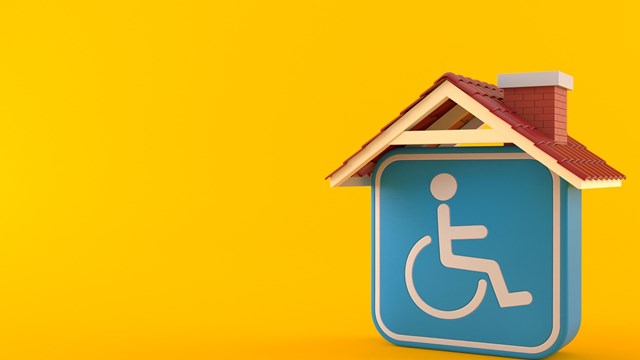
Q. In our parking garage we have access to a bike storage room and an outside bike rack that is next to a resident's handicapped parking spot. Right now the only way to get to the bikes is to "trespass" over the parking spot. Our concern is that if someone parks a larger vehicle or if we want to add more racks, we might not be able to access the space. Also if someone were to damage a parked car by trying to remove their bike, we will have a hard time managing fault. Could a future owner of the spot deny access because of not wanting anyone to trespass over the spot? Is the spot public or private property?
—Blocked in Boston
A. “In order to provide an accurate answer to this question I would have to read your condominium documents and review the garage plan recorded at the Registry of Deeds,” says Michael W. Merrill, Esq., at Merrill & McGeary in Boston.
“As I have not been provided with either, this answer will assume your condominium's garage is created in a similar manner as most other condominiums with indoor garage parking. That is, the garage, bike storage room, trash room and outdoor bike rack are common areas for use by all unit owners subject to Rules and regulations adopted by the board. The location of the bike storage room, trash room and outdoor bike rack are all shown on the recorded garage plan. In the condominium documents, the developer reserved the right to grant parking easements to unit owners for use for parking private motor vehicles. The dimensions of the parking easements are depicted on the garage plans recorded at the Registry of Deeds. The condominium documents or the grants of parking easements establish conditions for the use of the parking spaces.”
“In condominiums similar to what is described above developers often reserve the right to grant parking easements or as you write to “sell parking spaces.” If so, the board does not have the right to keep the developer from selling the spaces. Generally the developer would be able to do so until he/she sold his last unit. However, there may be arguments that could be developed based upon the facts that the parking spaces are not approved by the city or town when the condominium was created. If so, it is possible a Court might order the parking spaces to revert to common area, but this would be a “long shot” and face dependent.
“If the spaces were sold to purchasers, the owner or holder of the parking easement would have the right to exclusively use the space without residents “trespassing” over the parking space. If the only way to access the bike storage room and bike rack is through the parking space then there is a conflict which would have to be resolved. Generally, however, the owner of the exclusive use area would have a right to keep others from accessing the bike storage area through his or her space. Often, the condominium documents will recognize this conflict and provide a method of access.
“The board would not have the right to add more bike racks if the rack encroached on a parking space whether the space is a handicapped space or not. I would point out though, as you probably are aware, handicapped residents generally do require a larger space for access to their vehicles and this access should not be impeded.
“If a bike user damaged a vehicle in a parking easement area while trying to remove a bike from the bike rack area, the user would be liable for the damage because the vehicle in the space has the exclusive right to be in the space. The space, while subject to rules and regulations adopted by the Board, should not be considered “public storage.”
“The bottom line is, if spaces are sold and occupied by a vehicle and in doing so the bike storage room and bike rack cannot be accessed, then there can't be a bike storage area or bike racks. All of this assumes there is no specific language to the contrary in the grant of parking easement or the condominium documents.”






Leave a Comment